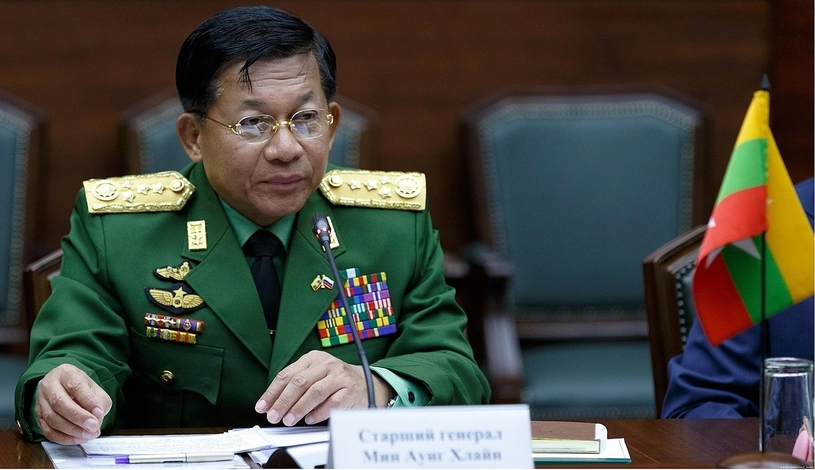Already a subscriber? Make sure to log into your account before viewing this content. You can access your account by hitting the “login” button on the top right corner. Still unable to see the content after signing in? Make sure your card on file is up-to-date.
Myanmar’s military-run government has announced plans to hold general elections starting in December amid its ongoing civil war.
Some shit you should know before you read: Since early February 2021, Myanmar has been caught up in a violent and protracted political crisis following a military coup that ousted the democratically elected government of Aung San Suu Kyi. The military, or Tatmadaw, claimed the takeover was necessary due to alleged voter fraud in the November 2020 general election, in which Suu Kyi’s National League for Democracy (NLD) won by a landslide. Despite the military’s claims, independent election monitors like the Carter Center found no credible evidence of widespread fraud, validating the legitimacy of the election outcome. In the wake of the coup, mass protests erupted and were met with brutal crackdowns, sparking a nationwide resistance movement that evolved into a civil war involving pro-democracy militias and ethnic armed groups. The United Nations estimates that thousands of civilians have been killed and more than 2 million people have been displaced since the conflict began. The military junta has also repeatedly delayed promised elections (originally slated for 2022, then 2023) under the pretext of national instability.

What’s going on now: In a notable development, Myanmar’s election commission confirmed it would move forward with long-delayed general elections, beginning on December 28, 2025. The polls are described as the first phase in a multi-step process, with additional voting dates expected in January 2026. According to the junta-controlled Union Election Commission, the election will cover seats in both chambers of the national parliament as well as state and regional legislatures. Official statements from state media claim that 55 political parties have registered to participate, though only nine will contest seats nationwide, many of which are seen as pro-military or affiliated with the ruling regime.
The announcement has sparked widespread skepticism both domestically and internationally, with critics questioning the feasibility and legitimacy of holding elections amid ongoing armed conflict. Since the 2021 coup, large portions of Myanmar (particularly in the north, west, and southeast) have fallen under the control of ethnic armed organizations and pro-democracy resistance forces, many of whom have vowed to block any voting in their territories.
Despite these concerns, junta leader Min Aung Hlaing has insisted the elections must proceed, framing them as a key step in returning to a “disciplined democracy.” However, most opposition parties, including the dissolved National League for Democracy (NLD), are barred from running, further fueling accusations that the polls are designed to legitimize military rule rather than restore democratic governance.







